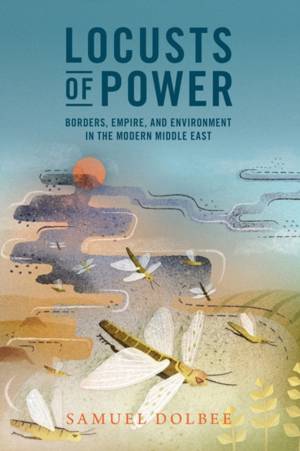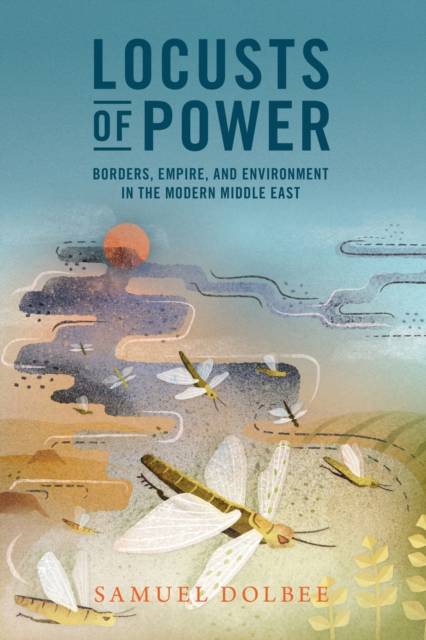
- Afhalen na 1 uur in een winkel met voorraad
- Gratis thuislevering in België vanaf € 30
- Ruim aanbod met 7 miljoen producten
- Afhalen na 1 uur in een winkel met voorraad
- Gratis thuislevering in België vanaf € 30
- Ruim aanbod met 7 miljoen producten
Zoeken
€ 46,45
+ 92 punten
Uitvoering
Omschrijving
In this highly original environmental history, Samuel Dolbee sheds new light on borders and state formation by following locusts and revealing how they shaped both the environment and people's imaginations from the late Ottoman Empire to the Second World War. Drawing on a wide range of archival research in multiple languages, Dolbee details environmental, political, and spatial transformations in the region's history by tracing the movements of locusts and their intimate relationship to people in motion, including Arab and Kurdish nomads, Armenian deportees, and Assyrian refugees, as well as states of the region. With locusts and moving people at center stage, surprising continuities and ruptures appear in the Jazira, the borderlands of today's Iraq, Syria, and Turkey. Transcending approaches focused on the collapse of the Ottoman Empire or the creation of nation states, Dolbee provides a new perspective on the modern Middle East grounded in environmental change, state violence, and popular resistance.
Specificaties
Betrokkenen
- Auteur(s):
- Uitgeverij:
Inhoud
- Aantal bladzijden:
- 336
- Taal:
- Engels
- Reeks:
Eigenschappen
- Productcode (EAN):
- 9781009200356
- Verschijningsdatum:
- 25/05/2023
- Uitvoering:
- Paperback
- Formaat:
- Trade paperback (VS)
- Afmetingen:
- 152 mm x 229 mm
- Gewicht:
- 494 g

Alleen bij Standaard Boekhandel
+ 92 punten op je klantenkaart van Standaard Boekhandel
Beoordelingen
We publiceren alleen reviews die voldoen aan de voorwaarden voor reviews. Bekijk onze voorwaarden voor reviews.











